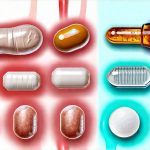Experiencing a stinging sensation after urination can be deeply unsettling and understandably cause concern for women. It’s a symptom, not a disease itself, signaling that something is causing irritation within the urinary tract. This discomfort ranges from mild annoyance to sharp pain and can significantly impact daily life. Many factors contribute to this unpleasant experience, making accurate identification of the underlying cause crucial for finding effective relief. While often associated with urinary tract infections (UTIs), which are indeed a common culprit, stinging after urination can also stem from other conditions, lifestyle choices, or even sensitivities to certain products.
Understanding what might be causing this discomfort is the first step toward managing it effectively. It’s important to note that self-diagnosis isn’t recommended; consulting a healthcare professional is always best to rule out serious concerns and receive appropriate guidance. However, knowing potential causes empowers you to discuss your symptoms accurately with your doctor and explore suitable options for relief. This article explores common reasons behind stinging after urination in women and offers practical strategies for easing discomfort while emphasizing the importance of seeking medical advice when necessary.
Common Causes of Stinging After Urination
The urinary tract – encompassing the kidneys, ureters, bladder, and urethra – is susceptible to various irritations that can lead to a burning or stinging sensation during or after urination (dysuria). Urinary Tract Infections are by far the most frequent cause, accounting for a significant proportion of cases. These infections occur when bacteria, often E. coli from the digestive system, enter the urinary tract and multiply. Women are more prone to UTIs than men due to their shorter urethra, making it easier for bacteria to reach the bladder. Other common causes include:
- Interstitial Cystitis (also known as painful bladder syndrome), a chronic condition causing bladder pressure, bladder pain, and sometimes pelvic pain. The exact cause isn’t fully understood but is thought to involve inflammation.
- Vaginitis, an inflammation of the vagina, often caused by bacterial imbalance, yeast infections, or sexually transmitted infections. Vaginal irritation can sometimes mimic urinary symptoms.
- Sexually Transmitted Infections (STIs) such as chlamydia and gonorrhea, which can inflame the urethra and cause painful urination.
- Irritation from feminine hygiene products: Douches, scented soaps, wipes, and sprays can disrupt the natural pH balance of the vagina and urinary tract leading to irritation.
Beyond these primary causes, certain lifestyle factors can also contribute to stinging after urination. Dehydration concentrates urine, making it more irritating to the bladder lining. Diet plays a role too; excessive caffeine, alcohol, spicy foods, or acidic fruits may aggravate symptoms in some individuals. Finally, allergic reactions to latex condoms or spermicides can cause urethral inflammation and discomfort. It’s vital to remember that these are potential causes, not definitive diagnoses—professional medical evaluation is essential for accurate identification. If you experience pain after urination, it might spread to your hips – pain after urination.
Soothing Strategies & Home Remedies
When experiencing stinging after urination, several steps can be taken to alleviate discomfort while awaiting medical attention or alongside prescribed treatment. Hydration remains paramount. Drinking plenty of water helps dilute urine, reducing irritation and flushing out bacteria if an infection is present. Aim for at least eight glasses of water daily, increasing intake further during warmer weather or physical activity. Beyond hydration, dietary adjustments can offer relief:
- Limit consumption of caffeine, alcohol, spicy foods, and acidic fruits (citrus, tomatoes).
- Consider incorporating cranberry juice into your diet—although research is mixed, some studies suggest it may help prevent bacteria from adhering to the urinary tract walls. Avoid cranberry juice if you have a history of kidney stones.
- Probiotic-rich foods like yogurt can support gut health and potentially reduce the risk of UTIs by promoting beneficial bacteria.
Additionally, simple practices can provide immediate comfort. A warm bath or applying a heating pad to your lower abdomen can help soothe bladder spasms and ease pain. Avoid harsh soaps and scented products in the genital area, opting for gentle, fragrance-free cleansers instead. Wear breathable cotton underwear to minimize irritation and keep the area dry. Importantly, refrain from self-treating with antibiotics—they are ineffective against viral infections and contribute to antibiotic resistance. If you’re experiencing burning after urination, especially with prostatitis – burning after urination.
When to Seek Medical Attention Immediately
While many cases of stinging after urination can be managed with home remedies or prescribed medication, certain symptoms warrant immediate medical attention. Don’t hesitate to contact your healthcare provider if you experience any of the following:
- Fever (100.4°F or higher)
- Back pain or flank pain – could indicate a kidney infection
- Nausea and vomiting
- Blood in your urine (hematuria)
- Inability to urinate, or significantly reduced urine output
- Severe pelvic pain
These symptoms suggest a more serious underlying condition that requires prompt diagnosis and treatment. Delaying medical attention can lead to complications, particularly if the issue is related to kidney infection, which can cause permanent kidney damage. Early intervention is key to preventing long-term health problems. If you feel pressure in your groin after urination – pressure in the groin. Also, if tension builds up post work – ease tension perineum.
Preventing Future Episodes
Once you’ve addressed the immediate discomfort, focusing on prevention can help minimize future episodes of stinging after urination. Practicing good hygiene is fundamental:
- Wipe from front to back after using the toilet to prevent bacteria from spreading from the rectal area to the urethra.
- Empty your bladder completely when urinating.
- Urinate shortly after sexual activity to help flush out any bacteria that may have entered the urethra.
- Avoid douching, as it disrupts the natural vaginal flora and increases the risk of infection.
- Consider alternative feminine hygiene products if you suspect sensitivity to current ones.
Furthermore, maintaining a strong immune system through a balanced diet, regular exercise, and adequate sleep can enhance your body’s ability to fight off infections. Staying well-hydrated remains a cornerstone of preventative care. If you experience recurrent UTIs or stinging after urination, discuss with your doctor whether further evaluation is necessary to identify underlying contributing factors and develop a personalized prevention plan. Ease into movement can also help reduce strain. Remember that proactive measures are often the most effective way to maintain urinary health and avoid discomfort. If you struggle with urge urination – control urge urination. Finally, easing lower body grip can provide relief – ease lower body grip.





















